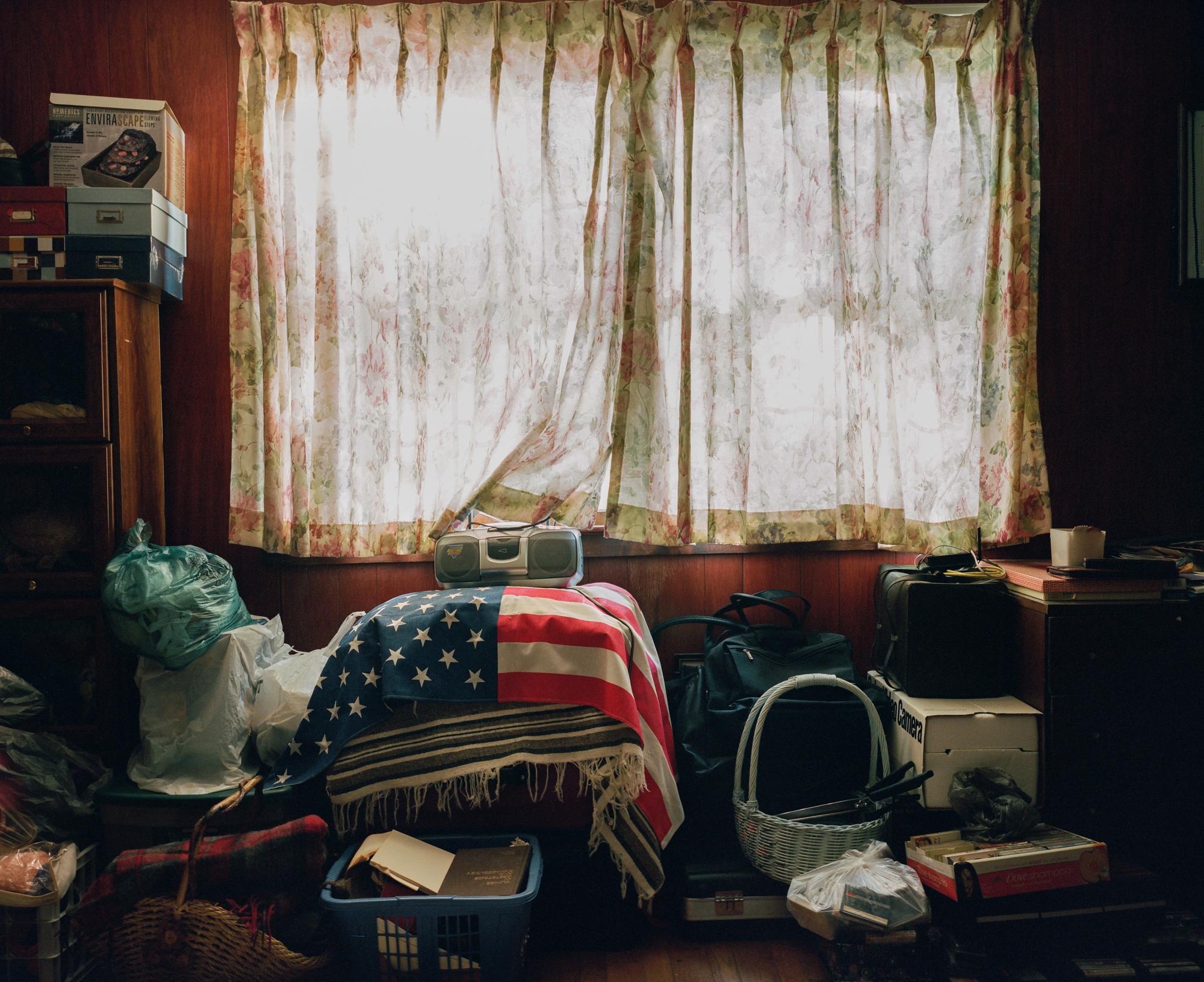
ARTIST STATEMENT
My ongoing project See You at Home (2017 - present) is a personal narrative that centers on family, memory and the myth and melancholy surrounding the American Dream.
My parents, Shailendra and Sarla Kapoor, immigrated from India in 1973, settling in a small town of 10,000 people in rural Pennsylvania. They are one of only a few immigrant families in the region. While they left India for a better life, the shift from a collectivist nation to an individualistic one led to isolation just as much as it led to freedom. As they grow old in Pennsylvania with my sister and I no longer living nearby, their isolation only becomes more apparent to me.
I began making work about my family during a trip to India with my father, fifteen years ago. I hadn’t visited since I was a child, and it was my father’s first time in sixteen years. It was important for both of us. Questions of family, identity and personal history were born out of that trip and continue to inform my work and this project today.
See You at Home explores the dichotomy of home and homeland, freedom and isolation, collectivism and individualism, through images I make of my parents’ current life in America imbued with memories of their past. Although this personal narrative began as an examination of diaspora, aging and the unique duties that fall to the only son of Asian immigrants, my hope is that See You at Home will resonate with other first-generation Americans and those interested in the myth of the American identity, seeking to find place and purpose here.

CURATOR STATEMENTS
“I was drawn to this project because it sensitively addresses and intertwines the themes of migration and aging. The photographs of the past and present, when presented together, bring to the fore the impact of displacement, even when it is by choice. “Home,” in the end, is both spatially and temporally unstable.”
- Leslie Ureña, Associate Curator of Photographs, National Portrait Gallery, Smithsonian
“I was immediately drawn to Vikesh Kapoor’s work because his investigation of home felt particularly resonant—urgent, even—at this particular moment. What does home look and feel like, particularly in an adopted country? Kapoor’s project reminded me of a favorite body of work by Larry Sultan, in which Sultan explores the concept of home and the mythology of the American dream through photography, family snapshots and home movies. Kapoor’s work powerfully and poetically builds on this kind of investigation, imbuing it with a kind of poignancy that feels both very personal and also of the current political moment, summoning the debates around immigration and what it means to be an American.
- Corey Keller, Curator of Photography, SFMoMA
“Vikesh Kapoor’s ‘See You at Home’ is a poignant view of an urgent social and political subject told through the lens of the personal and familial. The title is evocative, suggesting a temporary parting and anticipation of sorts; a reunion that could be hours or years away – an indefinite period of time.
I was struck by the way in which Vikesh articulated his parents’ relationship with one another and the home they built together through his own photographs, as well as those he chose from the family album. When the idea of what ‘home’ means and to whom is so fraught, the series suggested to me a couple finding ‘home’ in one another.”
- Emma Lewis, Assistant Curator, Tate Modern

"Vikesh Kapoor's photography is a poetic and graceful vision that stages vulnerability, the vulnerability that characterizes us as human beings. The one we share with the natural world that is not something separate from us but an essential part of our lives."
- Francesca Marani, Photo Editor, Vogue Italia
"Vikesh Kapoor's image is a complex photograph. On one hand, it is serene and in peace with the green grass and white flowers. One could almost feel the wind caressing them. On the other hand, the death of the deer with its bent neck is unsettling. The photograph profoundly evokes this duality. It shows the strength of nature and at the same time what humans have done to nature, almost saying everything about the planet today."
- Sarker Protick, Faculty at Pathshala Media Institute, Co-Curator at Chobi Mela
